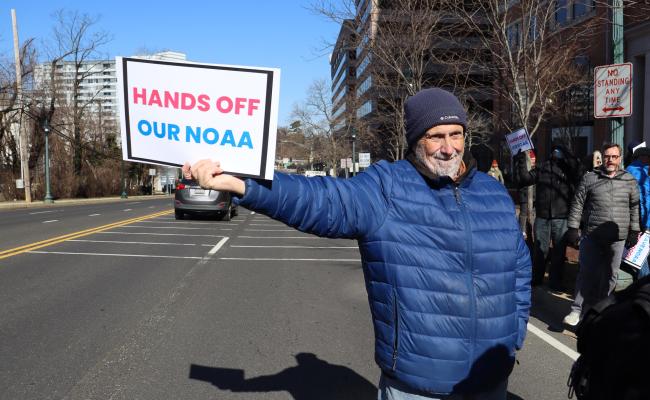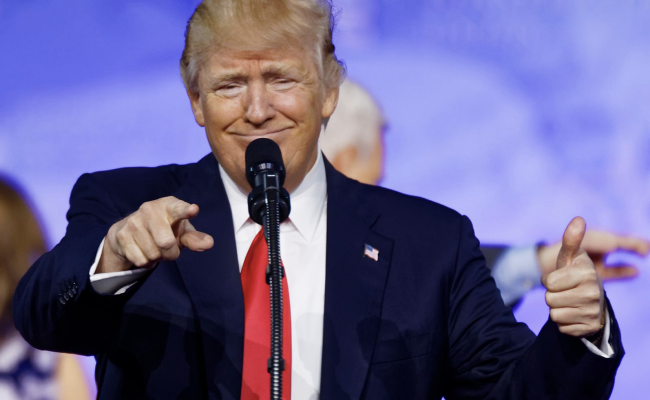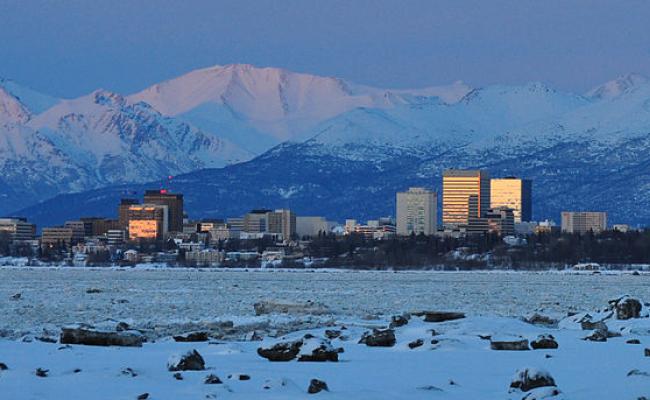Arctic Research Cooperation With the US Continues as Before
The collaboration with the USA continues as before at UiT The Arctic University of Norway. (Photo: UiT)
Research and education in the United States are under tremendous pressure. How does this affect research collaboration in the Arctic? UiT, the Arctic University of Norway, and Luleå University of Technology say that for the time being, the collaboration will continue as before.
American knowledge institutions are under great pressure from the Trump administration. Many schools and institutes are robbed of their funding, and limitations on research and education are imposed.
For the past few months, the Trump administration has attacked research and education with mass firings, cuts in funding, and limitations to research. Research on climate, diversity, equality, and inclusion has been hit particularly hard. Primary school education may also be subject to restrictions regarding diversity, equality, and inclusion in order to continue to receive government support.
In addition, the administration is trying to shut down the US Department of Education. Trump signed an executive order on March 20th, 2025, to do so, but a complete shutdown will be impossible without Congress's approval.
The attack on research and education has far-reaching consequences, including for science diplomacy. ScienceNorway.no recently reported that an American university has terminated its cooperation with the University of Bergen due to the challenging political climate in the US.

Jan-Gunnar Winther, Prorector for Research and Development at UiT the Arctic University of Norway. (Photo: UiT)
"Given the central role that American research has had, this is serious for several research fields, including health and climate. Further concern is connected to free research being under pressure," says Jan-Gunnar Winther, Prorector for Research and Development at UiT the Arctic University of Norway, to High North News.
Free and independent research at risk
High North News has previously reported on what the American cutbacks could entail for Arctic research. Many researchers believe that the US is creating a vacuum that will be filled by China.
Three years after Russia invaded Ukraine and the subsequent loss of all research cooperation with the country, the region could now be about to lose yet another key actor in the North.
And even where research remains, some wonder how free and independent it really is. What consequences does this have for Arctic bilateral cooperation agreements?
"We are prepared for the possibility of restrictions on projects funded by various federal institutions. Given the central role that American research has played, this is serious for a number of research fields, including health and climate. Further concern is connected to free research being under pressure," says Winther, and adds:
"In the Arctic, we have not had access to data and knowledge from Russia for some years, which accounts for half of the land area in the region. If American research efforts in the Arctic were to decline, it would exacerbate the already demanding situation that applies to Arctic research cooperation."
Anna-Karin Lundin, press contact at Luleå University of Technology, says that this is also being discussed in Luleå, but the consequences of the American strategy are still unclear.
Trump and DEI
The Trump administration has cracked down on Diversity, Equity, and Inclusion (DEI) – an organizational framework that aims to promote fair treatment and full participation for all people. This particularly applies to groups that have historically been underrepresented or discriminated against based on identity or disability.
In a March speech to Congress, Trump said, "We have ended the tyranny of so-called diversity, equity, and inclusion policies all across the entire federal government and, indeed, the private sector and our military. And our country will be woke no longer."
Woke is a play on the word ‘awake’ and refers to being alert, aware of, and critical of social injustice. The term has been used to refer to being invested in the fight against injustice in society, and especially against racism and gender discrimination.
The term is now used almost exclusively in a negative way, especially among the far-right in the ‘war’ on liberal values. Eradicating 'wokeism' is one of Trump's campaign issues, and climate and environmental protection are also described as part of woke culture.
Signed Trump agreement
Recently, the UiT Centre for Peace Studies signed an agreement sent out by the Trump administration. The agreement calls for institutions that receive support from American authorities to commit to not conducting research on climate, environment, diversity, gender, and sexual orientation, among other things.
UiT Rector Dag Rune Olsen says the agreement was signed by accident and that the signature will be withdrawn.
"It goes against our core values. It is not acceptable and will bind our organization in a way that we cannot live with," Olsen tells the newspaper iTromsø.
Winther explains to HNN that the financial support was for a course at NATO in Brussels, which will continue even if American support ends.
If American research efforts in the Arctic were to decline, it would exacerbate the already demanding situation that applies to Arctic research cooperation.
Cooperation agreements in the North
What cooperation agreements does UiT have with American knowledge institutions?
"UiT has cooperation agreements at the institutional level with 13 American universities. Furthermore, we have exchange agreements for students and employees under the University of the Arctic cooperation. These mechanisms are financed by Norwegian funds. Lastly, we have various forms of project cooperation," says Winther.
At Luleå University of Technology, they have bilateral cooperation agreements with six American institutions. They are also part of ISEP, a comprehensive international student exchange program. In addition, individual researchers and research groups can collaborate in ways that are not centrally coordinated.
Winther says that the agreements at UiT have so far not been affected by the Trump administration's mass layoffs, funding cuts, and research restrictions.
"The agreements themselves are not affected. We adhere to the Norwegian authorities' positions on international cooperation and continue institutional cooperation with the United States. We have not received any demands or notifications from partners in the United States that the terms of the cooperation have changed beyond what was reported in the media about the "Trump agreement". Incidentally, that was not an institutional agreement, but an agreement on project financing through an American federal grant scheme (U.S. Grants)," says Winther, and continues:
"We send and receive exchange students on the same basis as before. We are in contact with our partners in the US, who update us on any changes in conditions for foreign students. We follow up on all students who are going abroad, including those going to the US, and we comply with the Ministry of Foreign Affairs' travel advice."
At Luleå University of Technology, Lundin can say that they are experiencing that some of the American institutions they collaborate with have introduced stricter documentation requirements for students.
So far, they can only point to one specific project that has been affected—a collaboration with Africa that had its funding cut by the US. This project was coordinated by the University of Oulu in Finland.





